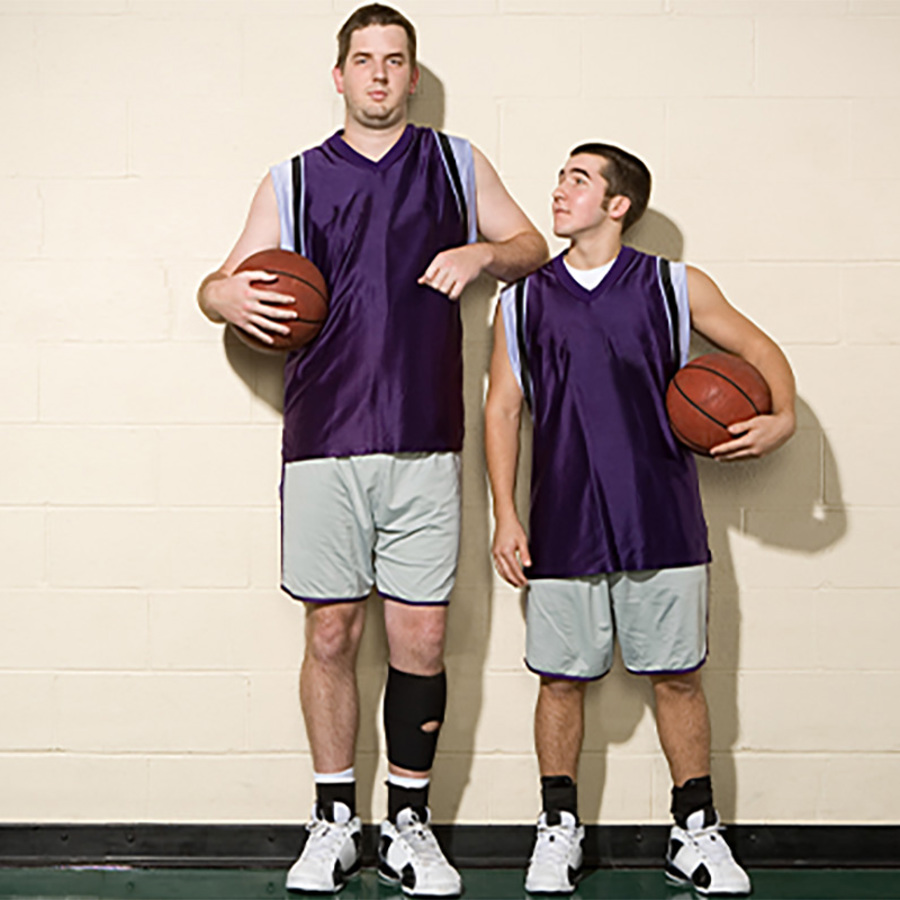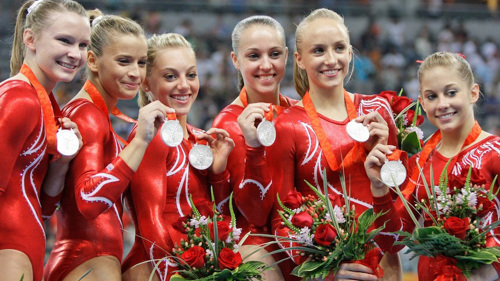
Can moderate amounts of exercise as a child make you taller as an adult?
November 10, 2011

- Related Topics:
- Appearance,
- Height,
- Environmental influence
A curious adult from Florida asks:
“Can moderate amounts of exercise as a child make you taller as an adult?”
How tall we are comes from both our genes and our environment. For most individuals, a combination of many genes largely determines our height potential.1 How we live our lives determines whether or not we can reach our maximum potential.
Environment is a catch-all word for everything we do, where we live, and what we experience. It includes what we eat, how much we exercise, and most everything else.
We know that what we eat strongly affects our height.2 For example, people who don't get enough protein when they are growing up end up shorter than they could be.3 But we don't yet have a definite answer on whether exercise can increase someone's height.
We do know that animals that get a lot of exercise end up with longer bones.4 And that exercise causes us to make extra growth hormone and testosterone (both of which could lead to being taller).5, 6 We also know that early exercise makes people's bones stronger.7
What we don't know yet is whether people that exercised a lot as children end up taller than they might have been if they had slacked off. You can bet, though, that scientists are looking into this and we may have a better idea soon.
So while exercise has many benefits, no one has proven that it can make you taller. But believe it or not, scientists have shown that it can sometimes make you shorter! Some athletes, like gymnasts, actually end up shorter, for reasons we will delve into later.

A Balance of Genes and Environment
Let's look at an example of how this works. For the rest of the answer I want to focus on a made up pair of sisters, Jane and Jill. Because they are identical twins, they have the exact same set of genes. This means that if their environments were exactly the same, then they'd end up the same height.
Scientists looking at identical twins like Jane and Jill have shown that height is about 80% genetic.2 That 20% difference shows that genes aren't everything! If they were, identical twins would be exactly alike.
The differences come from the things that each identical twin does. It also comes from what is available to them from the environment.
Think about height like building a skyscraper. The genes are like the plans. If you have everything you need in terms of steel, workers, etc., then you can end up with the Empire State Building.

The environment is really like the supplies. If you don't have enough steel, you're not going to go 100 stories high. You may end up with 80 stories instead (which is still pretty impressive!).
This is what could happen if you don't get enough to eat while you're growing up3. The plans (your genes) say to make you 6 feet tall. But you don't get enough calcium or protein and so you can only build 5' 10" worth of bones. And this is what happens to Jane.
Jane the Gymnast
Let's get back to our twins. Jane is an elite gymnast and trains for hours every day. She eats a lot of healthy food. But she is much shorter than Jill. Why?
It turns out, all those fancy flips and vaults cause a lot of strain on growing bones and growth plates. This stress and intense physical training can really impact growth! In a study of 262 male and female gymnasts, scientists found that the earlier a person started gymnastics, the greater the effect on bone growth.8
But remember what I said in the beginning. Exercise can sometimes make you shorter -- such as in gymnastics -- but there is no clear evidence that other forms of exercise will influence your height, whether shorter or taller!

Jill the Couch Potato
Jane's twin sister Jill, on the other hand, is quite the couch potato. But it turns out she's actually taller than Jane!
She burned off the same amount as she ate so she had plenty of supplies to get to her projected height. But the question is, could she have ended up even taller had she exercised more? Did she not get to her full potential height?
As I pointed out in the introduction, we just don't know yet. We do know that even though Jane is shorter than Jill, her bones are actually stronger. There's a lot of research in animals and people that shows that exercise makes your bones thicker and stronger.7
We also know from animal studies that exercise might make bones longer.
This research also shows that exercise makes cells release two hormones that increase bone length.5,6 These hormones are called growth hormone and testosterone.
What we don't know is whether Jill's extra testosterone and/or growth hormone would have much of an effect on her height. Scientists still need to work that out.
So to maximize your height, eat a healthy diet. And even if it doesn't make you taller, moderate amounts of exercise will give you strong bones too!

Author: Dr. Susan Roehl White
When this answer was published in 2011, Susan was a postdoctoral fellow in the Department of Molecular and Cellular Physiology, studying protein trafficking to primary cilia in Maxene Nachury’s laboratory. Susan wrote this answer while participating in the Stanford at The Tech program.
 Skip Navigation
Skip Navigation
